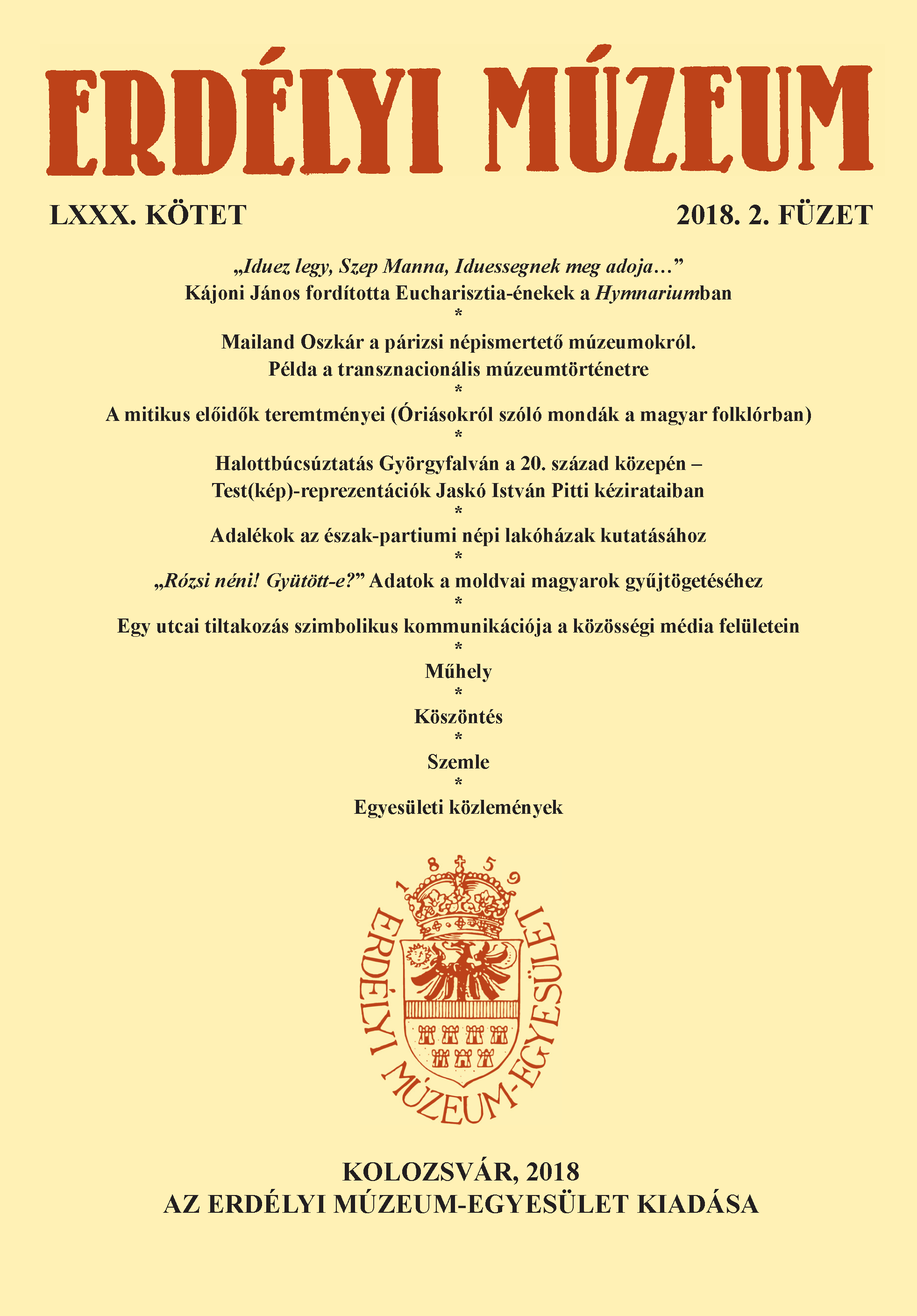„Iduez legy, Szep Manna, Iduessegnek meg adoja…” Kájoni János fordította Eucharisztia-énekek a Hymnariumban
Eucharistic Songs in the Hymnarium Translated by Johannes Caioni
Author(s): Norbert Medgyesy S.Subject(s): Cultural Anthropology / Ethnology
Published by: Erdélyi Múzeum-Egyesület
Keywords: medieval Eucharistic songs; franciscans from Transylvania; Johannes Caioni; Hymnarium
Summary/Abstract: In this study I propose the first publication of four medieval Eucharistic songs from the Transylvanian Franciscan Johannes Caioni’s Hymnarium (1659–1677), which are only known from this manuscript collection, and which, in all likelihood, are Caioni’s own literary translations. The Hymnarium contains the lyrics of altogether 16 Latin hymns, sequences and pious songs. From these, Caioni prepared the translation of 8 poems and also recorded (his own?) Latin prayer in verse beginning with the words Iduez legy, aldot szep Mana. The sequence Ave caro Christi chara… was recorded by the Jesuit Gergely Vásárhelyi in Keresztieni tudomanynak reovid summaia (Vienna, 1617). However, Caioni did not use it, as his translation, wording and verse completely deviate from Vásárhelyi’s. The transposition of Ave verum corpus natum is a work in its own right, independent of Vásárhelyi’s publication and the text of Utitárs (Bratisava, 1643). The song Salve saluberrima salus in firmorum… is only known in Hungarian from Caioni’s Hymnarium. All the above leads us to conclude that the Hymnarium was the antecedent and prototype of the Manuscript of Csíkcsobotfalva (1675) and of the printed Cantionale Catholicum (Csíksomlyó, 1676). From the phraseology and theologically supported metaphors of the translations, it can be proven that they are not merely word for word translations but rather the worthy efforts of Caioni to make beautiful, understandable literary translations that are still enjoyable today.
Journal: Erdélyi Múzeum
- Issue Year: LXXX/2018
- Issue No: 2
- Page Range: 1-13
- Page Count: 13
- Language: Hungarian

